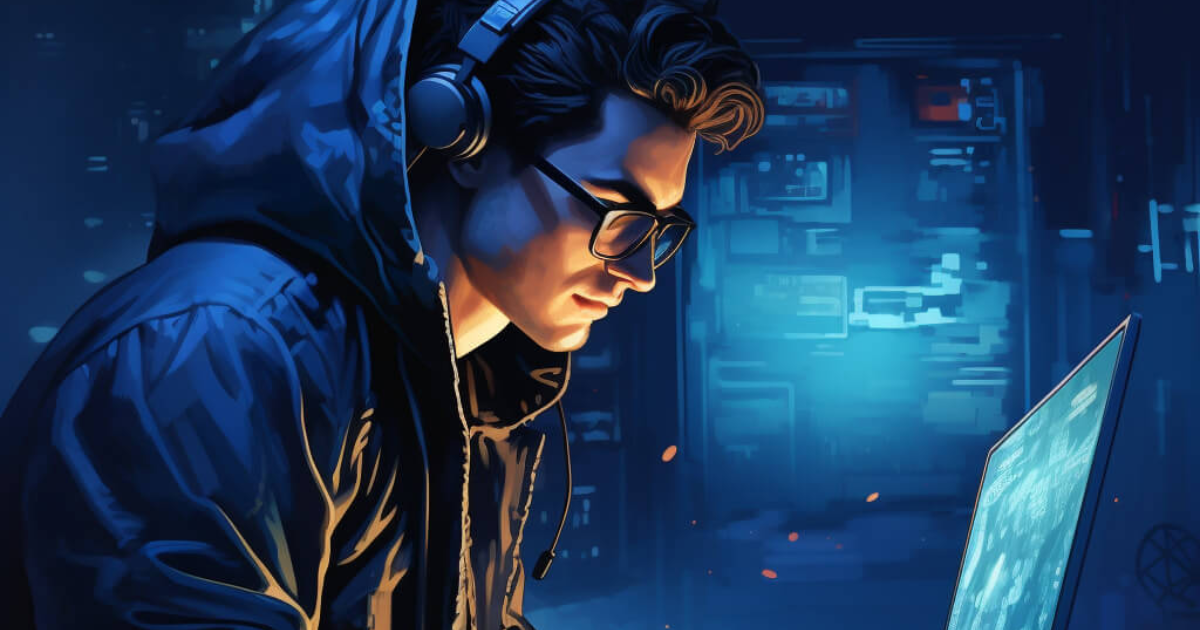Web3 games are a revolutionary advancement in the gaming industry. It means a paradigm shift in which gaming ecosystems and platforms are freed from centralized control, offering players a new level of autonomy and participation.
In this era of Web3 gaming, traditional gaming boundaries are redrawn and players are empowered to truly own game assets. This transformation is powered by blockchain , which creates secure, transparent and immersive gaming experiences. As players immerse themselves in Web3 games, they discover the freedom to trade assets, engage in captivating virtual realities, and participate in a play-to-earn economy.
The importance of Web3 games lies in their potential to define the gaming space, fostering a more player-centered, transparent and rewarding gaming environment.
What are Web3 games?
Web3 games represent a shift towards decentralized gaming, where a central authority has no control over game assets and decisions. In Web3 games, blockchain technology is integrated into the game ecosystem, allowing players to have a say in how the game evolves.
This transformation also introduces the concept of “play to win”, changing the traditional pay-to-play model. While playing, users can exchange in-game items for tradeable tokens and even cryptocurrency.
One of the main benefits of Web3 games is the creation of fair virtual markets within the gaming industry. Players gain full ownership of in-game digital assets stored as in-game NFTs (non-fungible tokens). These NFTs are unique and represent ownership.
Web3 games go further by promoting interoperability between various gaming ecosystems. This means that game resources and players can move seamlessly between different platforms.
The blockchain platform that is selected for game development determines how interoperable it will be. For example, platforms like Polkadot and Solana facilitate cross-chain communication bridges, improving the connectivity of Web3 games.
Skills Needed for Web3 Game Developers
The scope of Web3 game development is expanding at an unprecedented pace, offering exciting opportunities in the gaming industry.
As the gaming industry evolves, it is moving beyond simple 2D games into the realm of 3D and even 4D gaming experiences. This change requires a broader skill set on the part of developers. Three fundamental skills are required to become a successful Web3 game developer: game design, 3D modeling, and programming.
The role of a Web3 game developer encompasses several tasks, including designing game mechanics, crafting levels, creating captivating art and animations, and programming artificial intelligence (AI) for game characters. Developers can also manage game servers, deploy updates, and troubleshoot issues.
Although the specific competencies needed might differ based on the game and platform, web3 game developers typically require a strong background in web development, blockchain technology, and game development. Proficiency in programming languages like Python, JavaScript, and Solidity is especially beneficial for developing Web3 and blockchain games.
tron matic skills are crucial, since Web3 game development often involves cryptography and game theory. Additionally, having some graphic design experience is beneficial because you will likely be responsible for creating game graphics and user interfaces.
If you’re new to game development, consider starting with creating 2D games using popular engines like Unity or Unreal Engine. These platforms provide a great entry point into game development and a solid foundation.
As you gain experience in game development, you can begin to explore blockchain technology and how to integrate it into your games. Various blockchain platforms, such as Ethereum , EOS , and TRON, offer opportunities to create games with unique rules and guidelines, opening doors to interesting possibilities in Web3 game development.
Main Considerations in Web3 Game Development
In Web3 game development, several key factors are critical to ensuring success and innovation.
Blockchain technology mastery
Understanding the core of Web3 game development starts with blockchain technology. Developers must harness its potential to create secure, decentralized gaming platforms, a critical aspect of Web3 gaming.
Competition in smart trac
Intelligent tracks, self-executing agreements that govern the rules and mechanics of the game, are essential for Web3 games. Developers need experience in programming languages such as Solidity to create these tracks.
Unique game mechanics
As the Web3 gaming landscape evolves, uniqueness becomes paramount. Developers must come up with new and exciting game mechanics that will distinguish their creations in the emerging market for decentralized games.
Strong security measures
Security takes priority in Web3 game development. It is imperative to have multiple security measures in place to protect games and players from potential attacks and security threats.
User-centered design
A seamless user experience is essential. Game developers advocate for intuitive and user-friendly game design to improve player engagement and satisfaction.
Building a vibrant gaming community
Fostering a strong gaming community is essential. Developers should focus on tracking and retaining players to create a thriving gaming ecosystem.
Building your own Web3 game
In web3 games, developers and players look forward to a new era of immersive gaming experiences. Without requiring a centralized authority, web3 games give players total control over the game’s experiences and assets. This empowers players. If you’re curious about how to create web3 games, you’ve come to the right place. Here is a concise guide for aspiring web3 game developers:
Choose your blockchain platform
In the world of web3 gaming, the choice of blockchain network is critical and should align with the specific needs of your game. It’s critical for web3 game developers to choose the appropriate blockchain platform.
To make an informed decision, developers must invest time in extensive research. When assessing blockchain platforms, take into account factors like fees, liquidity, scalability options, and monthly active users. At the moment, Ethereum is the most widely used blockchain platform for web3 games.
However, it is essential to keep an eye on emerging alternatives. zkEVMs, known for their improved security, are gaining traction. For the development of web3 games, platforms such as Arbitrum, Polygon, Binance Smart Chain, and Optimism offer special benefits.
Among notable blockchain platforms for web3 gaming is Infura. It provides easy access to blockchain platforms such as Ethereum, Optimism, and Polygon, along with an NFT API . Additionally, Infura offers decentralized data storage and transfer solutions, making it a versatile option for developers.
Master programming languages
Mastery of programming languages is essential. Robustness is crucial for creating smart tracks, while other languages are needed for game code. It’s valuable to have a firm grasp of languages like JavaScript. Developing mastery of these languages lays the foundation for building your web3 game.
Create an engaging game
Creativity is a crucial aspect in developing web3 games that are often the center of attention. While much of the debate around “What skills are needed for a web3 developer?” focuses on technical skills such as blockchain and programming, it is essential not to overlook the importance of creativity and imagination in creating captivating gaming experiences.
It is vital to recognize that players are attracted to web3 games due to technological innovations such as blockchain and NFTs and their engaging experiences. So what are the critical elements to creating immersive and engaging gaming experiences?
Two key factors come to the fore when addressing this question: the quality of the graphics and the overall gaming experience. Additionally, web3 development companies should emphasize integrating social features that encourage community development, improving the overall appeal of their games.
Test and refine
In the next stage, thoroughly test your game prototype while collecting user feedback. Utilize this feedback to improve the game mechanics and user experience. A successful web3 game requires constant improvement.
Community Building and Marketing
The final stage focuses on building a community of Tron players and marketing your game on social media and other platforms. Keep a close eye on user feedback so that updates and improvements can be made as needed.
Understanding Non-Fungible Tokens (NFT)
Another crucial step in preparing to develop web3 games involves getting familiar with non-fungible tokens (NFTs). It is worth noting that NFTs have generated various opinions and criticisms within the web3 gaming community.
Some experts have expressed concern about the environmental impact of NFTs, as they can consume a substantial amount of energy. Additionally, scalability issues and network fees have been cited as challenges associated with NFTs in web games3.
However, it is essential to recognize that NFTs play a fundamental role in the web landscape3. They address asset ownership, a fundamental need for web3 games. NFTs offer genuine ownership of game assets and experiences. These digital assets are unique and their storage on blockchain networks guarantees their immutability.
NFTs allow for the purchase, borrowing, trading, and ownership of in-game goods in web3 games. Players have full control over these assets, even outside of the game environment. This empowerment gives tron players incentives to invest their time and efforts in web3 games, improving overall engagement.
Explore the mechanics of play to own
Early web3 games focused primarily on providing players with financial incentives through play-to-earn mechanics. However, this model had a major drawback: players prioritized earning rewards over playing the game. Consequently, web3 games sometimes lose the essence of pure enjoyment.
Interestingly, there has been a recent shift towards the play-to-purchase mechanism in the world of web3 gaming. What sets web3 game development apart from traditional games is the concept of playing to own. Play-to-own games employ a different strategy than traditional games, where players are usually awarded with in-game cash. They give players ownership of game assets in the form of NFTs (non-fungible tokens) on a blockchain network. This allows players the flexibility to buy, sell, and trade these game assets outside of the game environment.
In play-to-own games, players can earn NFTs through gameplay mechanics such as crafting items, completing quests, or defeating bosses. Because NFTs are distinct and scarce by nature, they present a fresh way for players to invest in web3 games.
From the perspective of web3 game developers, the play-to-own mechanic offers an advantageous revenue model. For example, developers can earn commissions on NFT sales within the web3 decentralized gaming marketplace. Additionally, ensuring ownership of assets between players mitigates the risks of cheating and fraud, fostering a safer gaming environment.
Community development and governance
Harness the power of community in web3 games. Decentralized Autonomous Organizations (DAOs) allow players to have a say in the future of the game. Empowering the community encourages diverse game development ideas and a more engaging gaming experience.
The field of web3 game development is dynamic and always changing. By mastering programming languages, understanding blockchain technology, and embracing creativity, aspiring web3 game developers can create immersive, player-centric experiences. Building a strong community and staying open to feedback are crucial steps toward success in this dynamic industry.
Benefits of Web3 game development
Web3 game development brings significant advantages compared to traditional online games.
Decentralization – Web3 games operate on decentralized platforms, ensuring that no one entity is in control. This improves security and transparency, reducing the risk of manipulation, which is common in centralized systems.
True Ownership – Using blockchain technology, Web3 games allow players to have true ownership of game assets. These assets are freely purchased, sold, and traded by players, simulating actual transactions.
Immersive experiences: Web3 games use augmented reality (AR) and virtual reality (VR) to enhance immersion. This creates very engaging and realistic gaming experiences, which captivate players.
Improved transparency: Thanks to its decentralized nature, Web3 games record all transactions in a public ledger. Transparency decreases the possibility of fraudulent activity while increasing player trust.
Play-to-Earn Opportunities: Web3 games introduce the concept of “play-to-earn,” which allows players to earn rewards, cryptocurrency, or tradable assets while playing. Players and developers are drawn in by this financial incentive, which promotes a vibrant gaming community.
Conclusion
Web3 game development offers an exciting and fast-growing career path in gaming. Leverage blockchain technology, smart tracks, NFTs, and decentralized platforms to create immersive, player-centric gaming experiences.
Web3 game developers play a crucial role in shaping the future of gaming, where players have true ownership of game assets, transparent gameplay, and a strong sense of community. There are many opportunities to start a fulfilling career in this exciting and cutting-edge field as the Web3 gaming industry grows.


